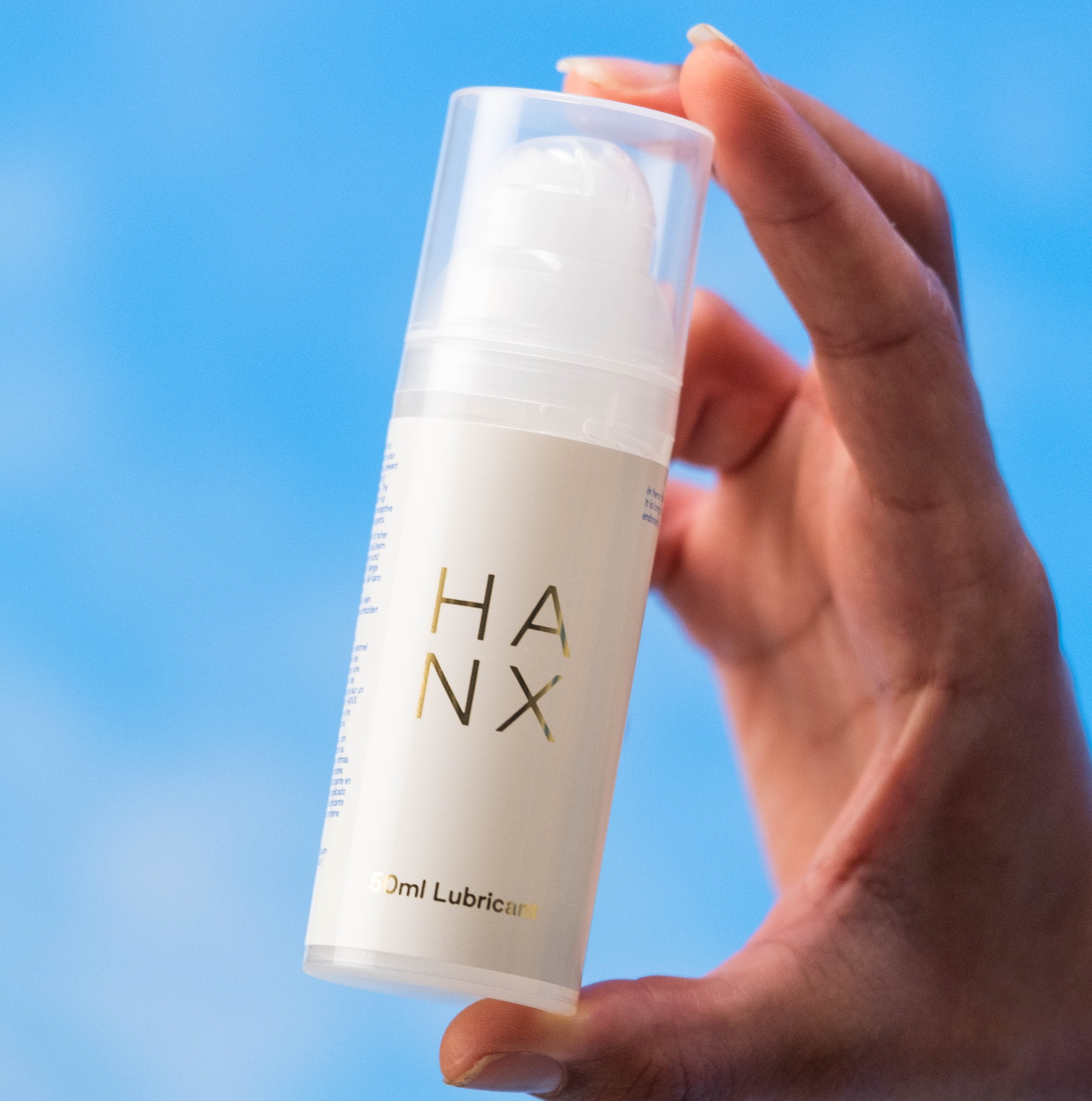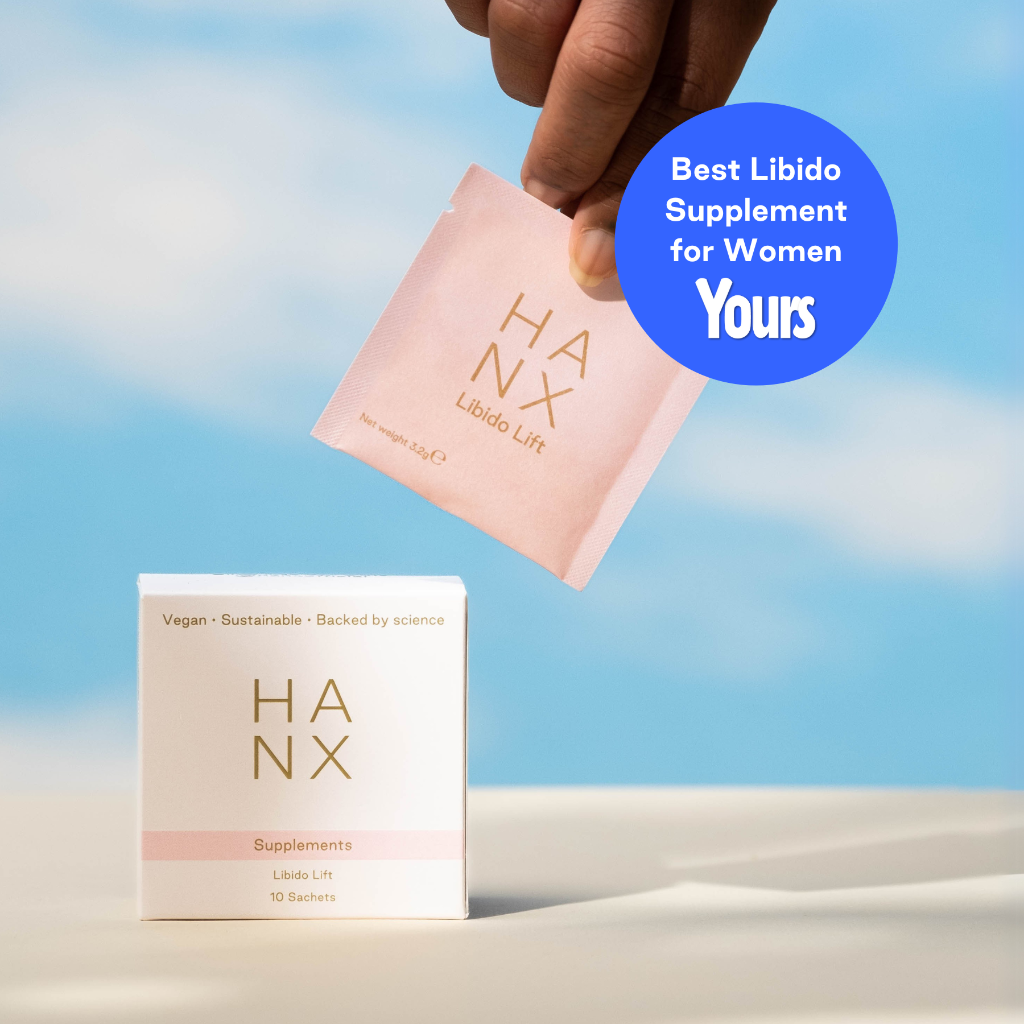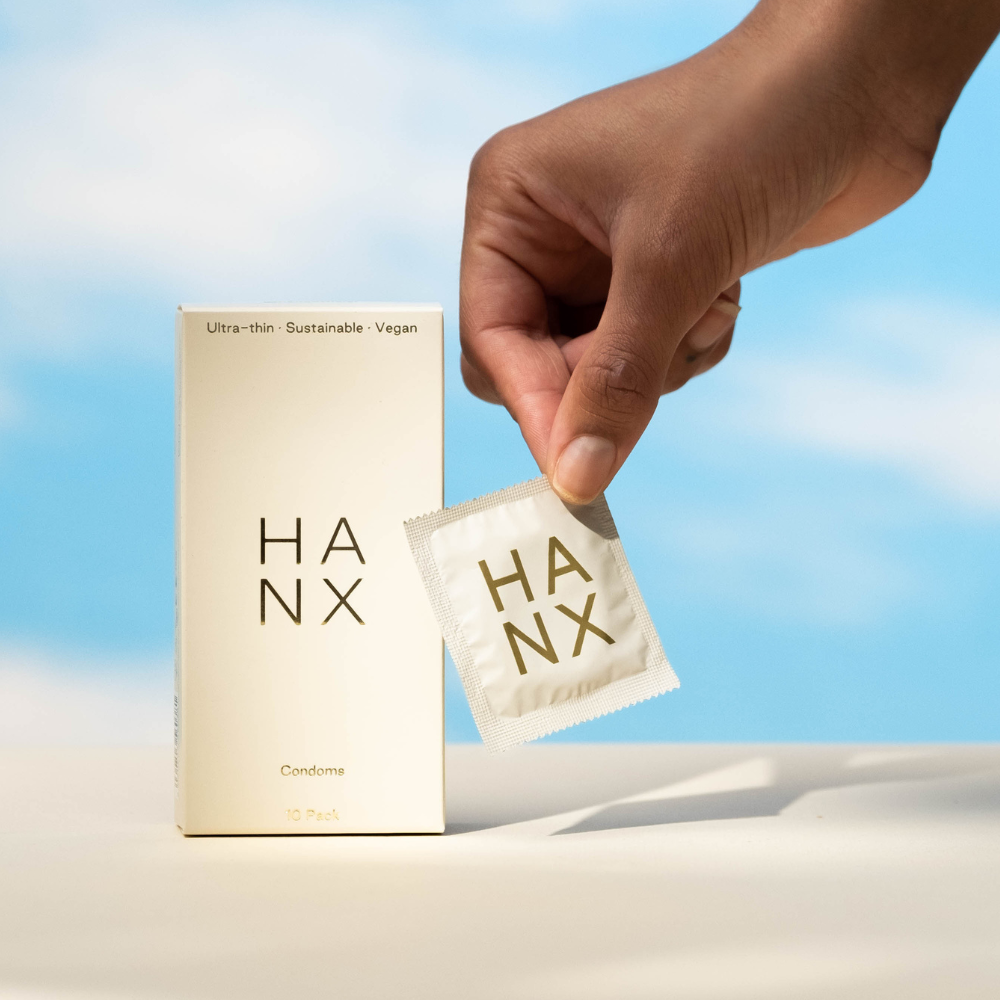What Is Cystitis?
The urge to nip to the loo non-stop, that uncomfortable stinging when you pee, and to be honest, just feeling generally meh: we know those cystitis feels all too well but don’t panic, our Co-Founder and gynaecology expert, Dr Sarah Welsh, has the answers to every cystitis question dropping into our DMs...
Taboos around our bodies, and especially what it means when they're not 'normal' might leave you feeling too embarrassed to ask for help, or plain confused about any symptoms you're experiencing. We quit our jobs to start HANX not just to offer a better option out there for sexual wellness and intimate care, but to help every single person on the planet understand what’s going on with their body, know when to seek help and understand how to manage any symptoms.
Cystitis is a very common ailment that is often treated easily, but its symptoms aren't necessarily easy to discuss with a friend, partner or doctor. Read on to learn about what cystitis actually is, how we treat it and what to do to help prevent it from coming back again and again.
What is cystitis?
Cystitis is the name given to the inflammation of the bladder, which is normally caused by an infection here. It is a common type of UTI (urinary tract infection) and especially in women. Some people suffer from cystitis due to a sensitivity to certain soaps or spermicides, or even abrasions during sex.
Why is cystitis more common in people with vaginas?
It is most often caused by bacteria getting from your gut into your bladder, and because the tube connecting the bladder with the outside (the urethra) is shorter in people with a vagina in comparison to people with a penis, then it’s easier for these bacteria to reach the bladder. Simples.
Will cystitis get better on its own?
Mild cases of cystitis often get better by themselves, often with the help of cystitis relief, and usually within a few days. However, some people have recurrent cystitis and may need regular or long-term medication to manage this. It’s also worth noting that if not managed, cystitis can sometimes lead to a more serious kidney infection. Therefore, if your symptoms are not improving, it’s important to seek medical advice.
How do I know if I have cystitis, what are the symptoms of cystitis and when should I see a doctor?
The common symptoms of cystitis include pain or stinging when you pass urine, needing to pass urine more often than normal and sometimes more urgently too, occasionally lower tummy pains, and feeling generally unwell in yourself (such as feeling tired and sick).
If after 2 days, or anytime if your symptoms are getting worse, then see your doctor as it is likely you will need antibiotics to treat it.
Symptoms in children are often more generic, such as being irritable or vomiting, and it’s important you take your child to be reviewed by a doctor if they might have a urine infection.

Sandy Soglund, Knees in Tub from Reflections in a Mobile Home, 1977
Should I take antibiotics for my cystitis?
Taking antibiotics as soon as you have symptoms of cystitis means you would be doing as much as you can to treat it, but also you may be taking antibiotics when you don’t need them. If you decide to wait, and then find you do not need to take antibiotics then you may avoid associated side effects and problems that come with antibiotic use.
Complications from cystitis, such as developing a kidney infection, happen in fewer than 1% of healthy non-pregnant women. There’s no good evidence to indicate whether taking an antibiotic straight away when you have cystitis symptoms, compared with waiting to take antibiotics, makes a difference to the chance of getting complications.
Around 10-20% of people have side effects from taking antibiotics, such as vomiting, rashes, diarrhoea and thrush. Taking antibiotics also increase the chances of bacteria becoming resistant to them, meaning they may not work as well when treating conditions in the future.
How can I help manage my cystitis apart from antibiotics?
You can take simple pain relief such as paracetamol and ibuprofen to manage any pain you have associated with the cystitis. It’s also important to stay well hydrated, so keep sipping that water!
Sodium citrate sachets can help manage the burning and stinging cystitis brings, by neutralising the acidity of the urine. This often gives a quick relief for the symptoms of cystitis.
It’s advisable to avoid having sex when you have cystitis, wipe from front to back when you go to the loo, and also make sure you pass urine regularly. Avoid perfumed products and scented washes around your genitals, but make sure you wash gently with skin-sensitive soap only.
Some people find that sitting in a cool bath (no frothy shower gels or bath bombs, though!) soothes some of the stinging, too.
Can I take the sachets for cystitis if I am pregnant?
No. Please seek medical help if you have cystitis symptoms during pregnancy.
What if I feel unwell with my cystitis?
If you have a fever, are passing blood in your urine (which is called haematuria in medic terms) or are feeling unwell in yourself, you should see your doctor for specialist review.
It is also important to see a doctor if you have a child you think has cystitis, you’re elderly, or are pregnant. Urine infections in these people can be more serious and present in unusual ways.
What makes me at a higher risk of getting cystitis?
Common risk factors for getting cystitis include:
- having a weakened immune system
- poorly controlled diabetes
- being pregnant
- being very young or very old in age
- having a catheter (a plastic tube that sits inside your bladder and drains urine to outside, meaning you do not pass urine as normal)
How can I help prevent cystitis?
To help prevent cystitis, make sure you avoid perfumed or scented products around your genitals, but wash regularly with warm water (a shower is advised over a bath). Try not to hold onto urine too often when you need to pee, empty the bladder completely each time, and make sure you wipe front to back! Stay hydrated and stay clear of tight-fitting synthetic underwear. Top tip: we like Pantee's super-comfy sets made from deadstock fabric. They're female-founded, focused on ethical manufacturing and all-round lovely human beings, too.
Does drinking alcohol cause cystitis?
Considering ditching the pina coladas? Alcohol doesn't directly cause cystitis, however drinking booze can irritate the bladder because it makes the urine more acidic, and can lead to dehydration - which is a risk factor for getting cystitis. If you get cystitis a lot, it’s worth cutting down on your alcohol consumption to see if this helps. Similarly, caffeine can trigger bladder flares, so it's worth passing on the morning lattes if you're affected by cystitis.
What is honeymoon cystitis - and is it a thing?
Honeymoon cystitis refers to a nasty bout of cystitis after sex. It can occur after having sex for the first time, having sex for the first time after a long period of time without any sexual activity or after lots of getting it on. The name refers to the age-old trope that heading off post-marriage will result in endless shagging. Read our full deep dive into avoiding and treating the post-sex sting here...
How can I help prevent honeymoon cystitis?
To stop getting cystitis after sex, it’s advisable to pee after sex, wipe front to back, stay hydrated and use a water-based lubricant to avoid irritation during sex.
Why is my cystitis worse at night?
Like many things at night, your cystitis may feel worse, and this is partly due to the fact that you can think about it without any distractions. The need to constantly pop to the loo also exacerbates being unable to sleep, and when you’re irritable and tired this doesn’t help matters! If this happens to you, make sure you don’t drink fizzy or caffeinated drinks before bed, take pain relief and relief sachets before going to sleep and if it becomes unbearable then get up and distract yourself for a little while before trying to get back to sleep again.
Are there any home remedies for cystitis?
The best self-help remedies for cystitis include taking pain relief, staying hydrated, using a hot water bottle to ease any tummy discomfort and resting.
Some people drink cranberry juice, take vitamin C and other supplements, but the mainstay of treatments include sodium citrate sachets and antibiotics.
Want to chat more?
- Order our safe, speedy treatment for cystitis here.
- Find out how to keep cool and avoid cystitis, BV and thrush in the summer with our ultimate guide.






















